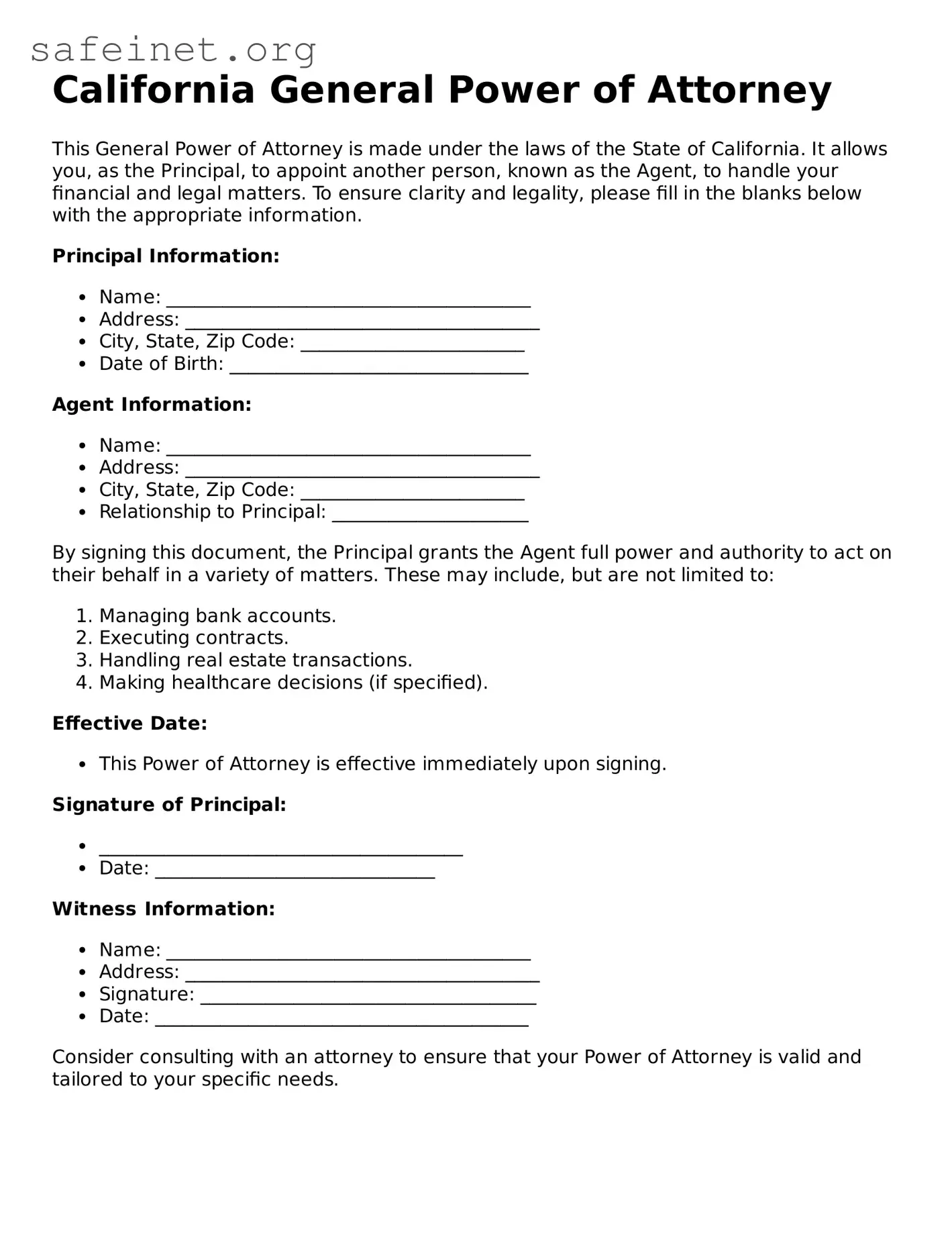The California Limited Power of Attorney serves a similar purpose as the General Power of Attorney but with a specific focus. While the General Power of Attorney grants broad authority to manage financial and legal affairs, the Limited Power of Attorney restricts this authority to particular tasks, such as handling a real estate transaction or managing a specific bank account. This distinction allows individuals to delegate trusted authority while maintaining control over other aspects of their affairs.
The Durable Power of Attorney shares characteristics with the General Power of Attorney, especially in terms of granting authority over financial matters. However, the key difference lies in its durability; it remains effective even if the principal becomes incapacitated. This ensures that someone can manage important decisions during a period when the principal cannot, thereby providing an important safeguard for ongoing financial management.
The Healthcare Power of Attorney, also known as a medical power of attorney, is distinct yet comparable. This document allows individuals to appoint someone to make healthcare decisions on their behalf. While the General Power of Attorney focuses on financial and legal matters, the Healthcare Power of Attorney centers specifically on medical issues. It ensures that an individual’s medical preferences are honored even if they cannot communicate their wishes directly.
The Springing Power of Attorney is another related document. This type of power of attorney becomes effective only upon a specific event, typically the incapacitation of the principal. Like the General Power of Attorney, it allows for management of affairs, but the "springing" nature means the authority is not active until certain conditions are met. It serves as a cautionary approach, offering peace of mind regarding when and how authority is exercised.
The Special Power of Attorney has similar features, as it grants authority to perform specific acts on behalf of an individual. Unlike the General Power of Attorney, which provides broad powers, the Special Power of Attorney is limited to particular transactions or activities, such as signing documents for a real estate deal. It allows a principal to delegate necessary authority without surrendering broader control over their affairs.
A Financial Power of Attorney specifically focuses on financial matters. It allows one person to manage another's finances, such as paying bills, making investments, and overseeing bank accounts. While it resembles the General Power of Attorney in function, it is explicitly directed towards financial responsibilities and may lack the broader scope related to legal and business matters.
The Revocation of Power of Attorney serves a critical function in relation to the General Power of Attorney. This document enables individuals to formally revoke any previously granted power of attorney, including a general one. It protects individuals from unauthorized actions made by someone who previously held the power, thereby preserving control over personal and financial matters.
Each of these documents shares a common theme of delegation of authority, yet they diverge based on the breadth of powers granted and the specific contexts in which they can be used. Understanding their similarities and differences can empower individuals to choose the proper documentation aligned with their needs.
Finally, the Tenancy-in-Common Agreement often relates indirectly to powers of attorney, particularly in the context of property ownership and management. While not a type of power of attorney, this agreement outlines the rights and responsibilities of co-owners of property. When combined with powers of attorney, it can establish clear lines of authority for managing shared assets, thus ensuring smoother transactions and less potential for conflict.
